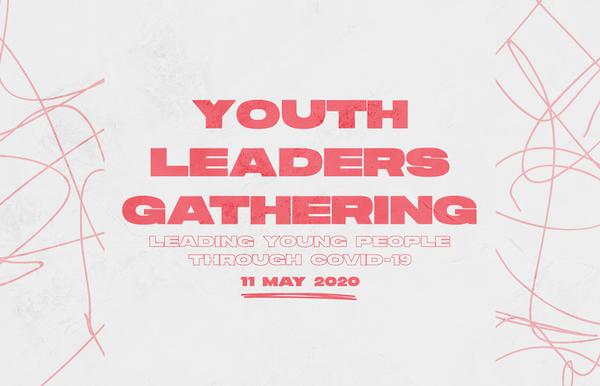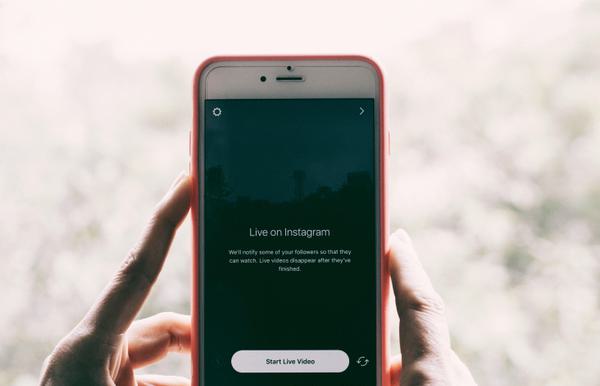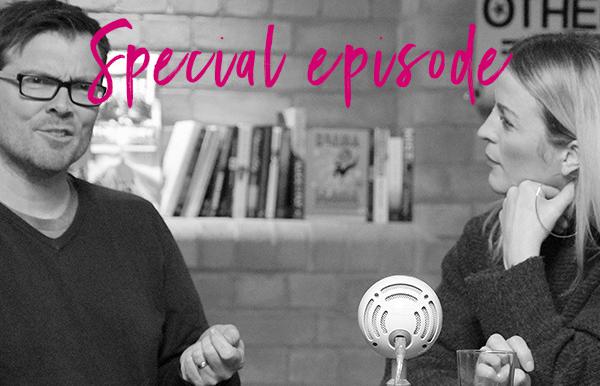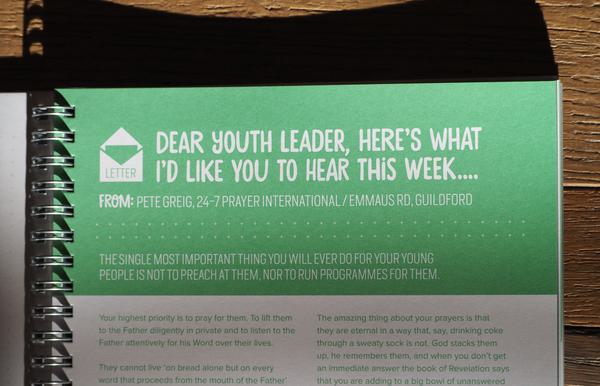We ran this liveblog from March to May 2020 to help youth leaders respond to the Covid-19 pandemic. All the content shared can still be accessed and searched for via the sidebar.
SOME HIGHLIGHTS FROM THE LIVEBLOG ARCHIVE:
Topic: Safeguarding
There are 0 new posts since the page loaded. Refresh
Resource Hub: New home for Coronavirus content
If you're looking for the latest blogs, research, and resources related to youth work and Covid-19, we've made a new home for that content with out Resource Hub, which you can find at the adjacent link. So no more updates on here, but do join us over there!
Liveblog: midweek round-up
We’re into the sixth week of lockdown but our liveblog is still going strong. Here are the highlights you may have missed from the last week.
- There’s been a couple of incredible blog posts appear over the last seven days. Both Martin's Order out of chaos: Creating a Rule of Life and Rachel’s Is TV's Sex Lockdown "Too Hot to Handle?" are definitely worth checking out!
- Mark Arnold was a guest on the Friday podcast and provided some great insights into the challenges many young people with additional needs are facing right now and the best ways youth workers can support them.
- The last in our series of quarantine ideas was published this week; the last post was all about how to run a quiz night with your youth group while in lockdown. The complete series is available on the blog and provides ideas and inspirations for how to plan fun social activities for your group to do together online.
- Multiple posts came out this week highlighting a range of different online resources and training, for example, Soul Survivor's Loud & Clear course and Dreaming the Impossible's online youth leader gathering.
- Lastly, if you're concerned about the vulnerable young people in your community, do check out the new report released today by the National Youth Agency. It talks through concerning situations many young people are facing as a result of the pandemic and emphasises the need for a clear exit strategy for young people who are likely to be included in the early stages of release.
As always, we want to thank you so much for your support and if there’s something you’d love to see or even something you want to contribute in coming weeks please get in touch!
Out of Sight? - National Youth Agency Report
If you're concerned about the vulnerable young people in your community, we recommend reading the new report released today by the National Youth Agency. It draws attention to the pressing needs many young people are facing as a result of the pandemic and calls for a clear exit strategy for young people who are likely to be included in the early stages of release from lockdown measures.
The top-three concerns (found in the report) are:
- ‘Increased mental health problems’: Over a million young people have self-reported mental health issues. There is a spike in calls to Help Lines, with 84% reporting worse mental health following school closures or being no longer able to access mental health support
- ‘Missing from education’: With schools only partially open and youth centres closed, as few as 5% of young people are currently engaged in school and have limited or no access to youth work. Even when schools re-open there are 700,000 young people persistently absent or NEET (not in education, employment or training)
- ‘At risk, at home’: Over a million young people are at risk from any of the so-called ‘toxic trio’ of addiction, mental health, and domestic abuse. Despite this, child protection referrals have plummeted by 50% in some areas.
You can read more and download the full report here.

New blog post: Is TV's Sex Lockdown "Too Hot to Handle?"
Netflix's answer to Love Island involves a different kind of lockdown. Rachel Gardner explores what this means for young people. Are the young people you work with watching it? This could be a great opportunity for a discussion. Check out the blog post here.
"One mistake can label you for a long time, especially in some church communities. Little wonder that some young people react like the contestants; if you've been unfairly singled out for a small misdemeanour, you might as well go the whole hog. Oh, and that’s the other thing Harry says as he kisses Francesca, ‘We’re already f*** up, we might as well do the whole lot.’ Sound familiar?"
Is TV's Sex Lockdown "Too Hot to Handle?"
Netflix's answer to Love Island involves a different kind of lockdown. Rachel Gardner explores what this means for young people.
Esteem Acet UK training
Are you planning to get some extra training in during this time? Esteem Acet UK are running a four-day accredited Relationships and Sex Education Training programme online. You'll learn how to:
- Support young people in building self-esteem
- Support young people in developing healthy relationships
- Develop confidence in talking openly and sensitively about sexual health issues
- Support young people to develop skills and resilience to deal with the influence and impact of modern technology on relationships and sex (including porn)
- Communicate to young people the importance of making healthy life choices about sex
- Plan and deliver effective, fun and interactive sessions with young people
- Apply best practice and recommended government policy guidelines
They are also posting out a pack of physical resources to use during the training, including #isitOK?, the sexting resource that Youthscape and Esteem Acet UK worked on together.
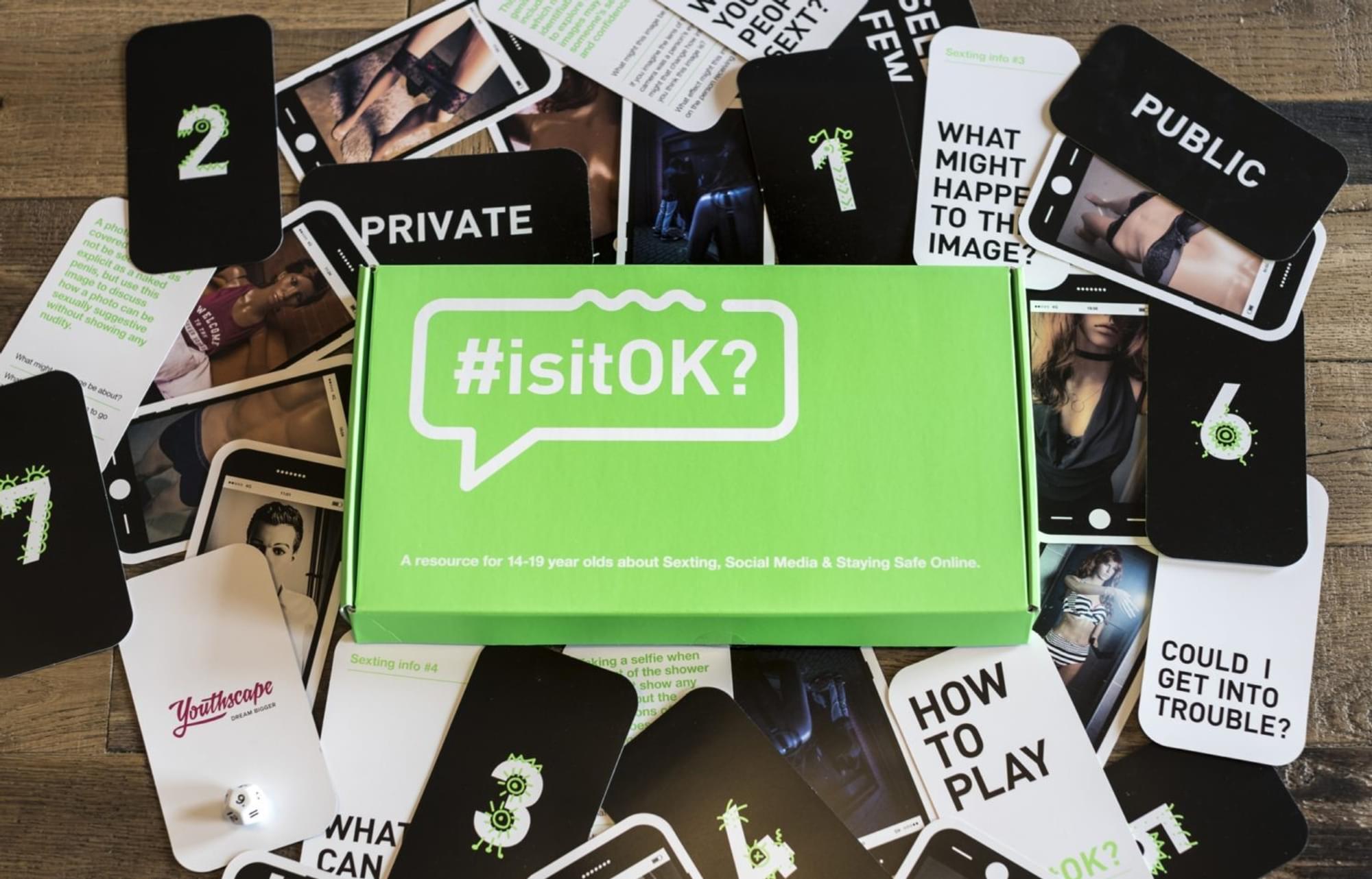
Some advice for parents and youth workers about the app Houseparty
A lot of young people are using Houseparty at the moment, a video-sharing app that's been around since 2016 but gaining popularity recently (it's had over 2 million downloads in just one week). It's also received a lot of negative press because of security worries - it has features that allow people to easily virtually "enter" a room. Open View Education have written this helpful blog post for a clearer overview of Houseparty.
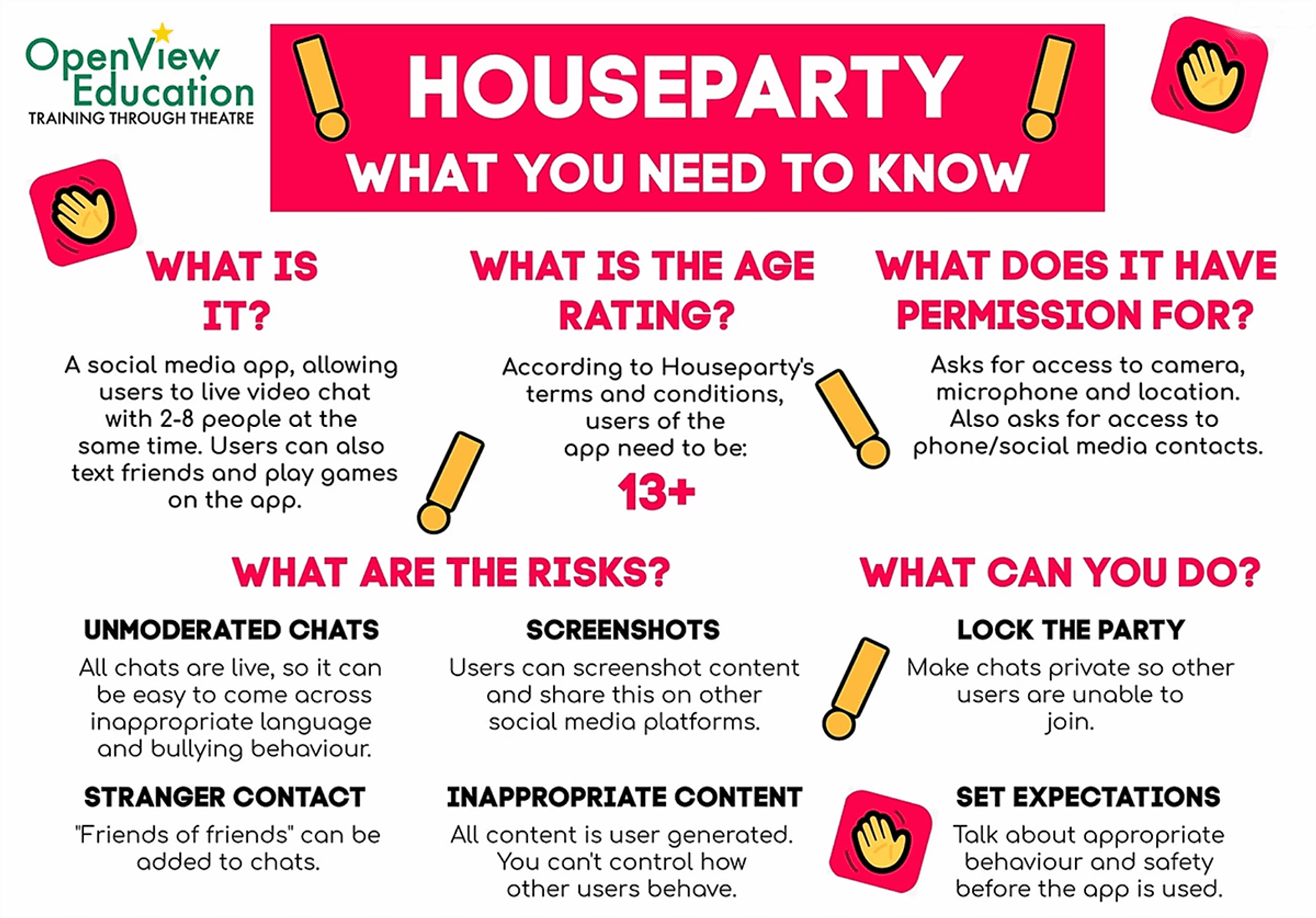
The Story: Free poster 2 – ‘Everything you need to know about sexting’
We’ve been rummaging around in the digital basement, and found some old posters from the first few editions of our research quarterly The Story, way back in the heady years of 2015 and 2016. We thought we’d share one a week with you, as a free download, in case you find yourself with a little more time for reflection and reading. If that’s not you, stick it in a file marked ‘Later’. You can download the poster as a PDF via the adjacent link.
As well as the information found in this poster, you can read more about our response to sexting in this Research News blog by Rachel Gardner. We have also worked with esteem Acet UK to produce #isitOK? - a resource to help youth workers talk to young people about the dangers of sexting.
We've also now released the spring edition of The Story: you can read it online here, or to get the full version in print, subscribe to The Story here.
The Story Poster 2: Sexting
A free downloadable PDF from our research quarterly The Story, on 'everything you need to know about sexting'.
Podcast Special #5: Safer Places Online
We’re creating a special series of the Youthscape podcast, which will continue to appear at semi-regular intervals during the current global crisis.
The fifth and latest edition has just gone live; in it Martin Saunders talks to Justin Humphreys about the updated safeguarding guidance that Youthscape and ThirtyOne:Eight have worked on together and Martin and Rachel reflect on what youth work practice will look like coming out of the pandemic.
You can listen now here, and subscribe to make sure you never miss an episode, here.
YS Special Edition 5: Safer Places Online with Justin Humphreys
In the latest of our special edition podcasts, Martin welcomes back Justin Humphreys from ThirtyOne:Eight to the Youthscape Podcast. They talk about creating safer places for young people online and looking out for vulnerable young people.
NSPCC: talking to children worried about COVID-19
The NSPCC has shared useful guidance about how to talk to children worried about coronavirus, alongside practical ideas about dealing with isolation: how to structure a day; keeping in touch with family, and helping young people maintain a sense of control. Childline, part of the NSPCC, has also produced this coronavirus information page aimed specifically at young people.
Childline last week reported it has faced "unprecedented demand for its services" in the wake of COVID-19. More than 900 children and young people worried about coronavirus had counselling sessions with Childline between the 21st of January and 22nd March. Sessions peaked on the day (18th March) that the government confirmed UK school closures.
The NSPCC reported that "Over half of young people who spoke to Childline last week about coronavirus were counselled for their mental and emotional health around issues like isolation, arguments at home and removal of professional support from schools and the NHS."
Last week, Youthscape Luton launched a Digital Mentoring program to serve young people in Luton looking for support, you can find out about it here.
Online Safeguarding guidance now fully updated
The second version of our online safeguarding guidance document, developed in partnership with independent safeguarding charity thirtyone:eight, is now available to download here or in the adjacent link. The new edition includes a number of updates and revisions, including an expanded list of risks to consider, some notes on special considerations for looked-after children, and clearer guidance on how to approach different kinds of online youth work interactions safely.
The new version also includes a flowchart diagram to help you to respond appropriately to an online safety incident, including signposting to the correct services for various issues. If you're working with young people in an online context we strongly recommend that you download and read this FREE resource, and consider sharing with other members of your youth work team. Remember - this is not a safeguarding policy, but it should enable you to develop one for your work, in liaison with your safeguarding lead.
Updated Safeguarding Guidance
A downloadable PDF of new guidance for communicating and working safely with young people online.
We are hugely grateful to the team at thirtyone:eight for their continued hard work and partnership on this vital resource. You can also find the document on thirtyone:eight’s website, which includes a range of other useful tools and materials.
Zoom-bombing: A note of caution for online video chats
The rapid rise in popularity of online video chat interface Zoom has brought with it a brand new and somewhat malevolent phenomenon. The practice of ‘Zoom-bombing’ sees people joining online chats and seeking to disrupt them by sharing explicit or unpleasant images, video and audio to the conversation. Once inside, the perpetrators are skilled at using multiple accounts to avoid being thrown off the call - meaning they’re quickly able to throw a video chat into chaos.
In order to prevent this from happening to a call, Zoom themselves have suggested a short list of steps you can take. You can find their response article here, but in brief summary:
- You should avoid listing zoom links (Personal Meeting IDs) in public, and never allow screen sharing as a standard default for all users.
- Familiarise yourself with the ways in which you’re able to manage participants as host (including muting individuals and locking the meeting), and make use of the ‘Waiting Room’ feature.
- You might also want to consider password-protecting any Zoom meetings which aren’t open to the public as a standard good practice measure.
Many churches and youth groups are making use of Zoom in a variety of ways, and the likelihood is that as more people hear about this rather innovative method of online trolling, more cases of ‘Zoom-bombing’ are unfortunately likely to occur. It’s therefore important to take steps where possible to protect against an attack of this sort, which could otherwise lead to the unleashing of pornographic or other harmful material in the middle of a session.
Online risk assessment tool from Ely Diocese
The Anglican Diocese of Ely’s youth team have created a risk assessment template specifically for use in online communication with young people. The document includes a helpful summary of government guidance around the risks of communicating through social media and interactive services, and then offers a thorough list of potential hazards and responses. It already offers a fairly comprehensive list of risks, but can be easily adapted to add others as they emerge. You can download the resource directly via the adjacent link, but be sure to visit the special section of the Ely Diocese website to find a host of other useful tools and documents, here.
On this theme, CofE Youth Officer Simon Hill (currently undertaking a Research MTh with Youthscape and LST), has produced an excellent guide to safe video conferencing with young people. You can find it here.
Online Risk Assesment (Ely Diocese)
A risk assessment template specifically for use in online communication with young people.
Digital Mentoring in Luton
How can you support young people without face-to-face interaction? How can you help them look after their wellbeing, and deal with challenging circumstances, without meeting together? Youthscape Luton has developed a new program that will provide online mentoring services to young people who want it. Young people can easily sign up for Digital Mentoring through this page, and with parental consent secured, they can check in for 20-minute video call sessions (once or twice a week) with a youth leader to talk about anything they want to. This is one of our local, Luton-based projects. Sadly we can't offer this service on a national scale, but we thought it might encourage you as you rethink familiar youth work models, and try to imagine what meeting the needs of young people looks like when all the rules have changed.
Could you attempt something similar where you are? Perhaps you've started already – if you've got a story you'd like to share of something you're trying out, don't hesitate to let us know!
Online safeguarding guidance ‘under constant review'
On Friday, Youthscape and safeguarding charity thirtyone:eight published a new guidance document for staying safe while moving parts of your youth work online. You can download the first draft of the guidance here, but we want to keep adding the caveat that this is designed as a basis from which you can create your own online safeguarding policy; it’s not a policy all on its own.
The teams behind this free resource are continuing to think around this developing area of youth work, and keeping the guidance under constant review. They are already working on a revised version which should be available by the end of the week. It will again be available to download from this liveblog page, and directly from thirtyone:eight’s website.
New online safeguarding guidance from thirtyone:eight and Youthscape
In response to a huge and sudden shift in the way much youth work will now be delivered, the teams at Christian safeguarding charity thirtyone:eight and Youthscape have been working hard to create a new guidance document to help youth workers to operate safely online. We should stress that this is NOT a ready-made policy for online youth work, but could be used as a basis for you to agree one, in consultation with your safeguarding lead. We hope this offers some helpful reassurance and stimulates thought about how we engage in this new frontier of youth ministry and mission together, while continuing to keep young people safe.
You can now download the document for free here (or via the adjacent link).
Creating safer places online
A downloadable PDF of new guidance for communicating and working safely with young people online.
Podcast Special #2: Virtual Youth Work
We’re creating a special series of the Youthscape podcast, which will continue to appear at semi-regular intervals during the current global crisis.
The second and latest edition has just gone live; in it Rachel Gardner and Martin Saunders discuss how it feels to do youth work online, the impact of the latest government measures on schools and young people revising for exams, and how we make sure that safeguarding remains a priority in the midst of innovation.
You can listen now here, and subscribe to make sure you never miss an episode, here.
YS Special Edition 2: Virtual Youth Work
What does it look like to do youth work online? And what does it look like for us to do youth work during times of national crisis? Martin and Rachel talk virtual youth groups, how to include all young people and the impact of schools closing.
Page 1 of 1




